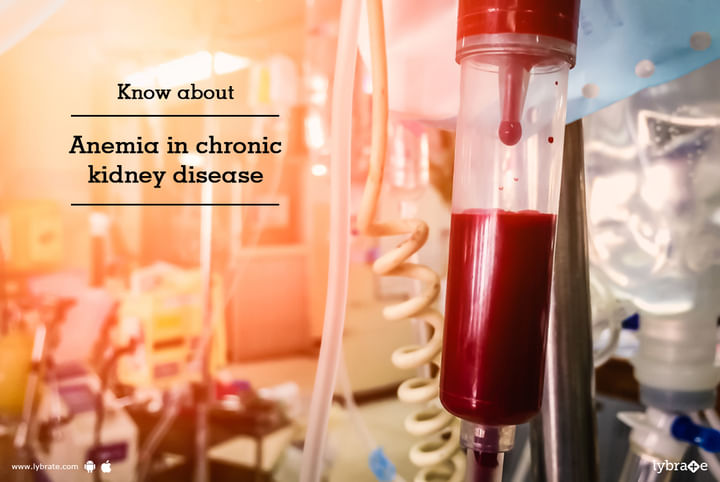Know About Anaemia In Chronic Kidney Disease!
Anaemia refers to the condition where your body has fewer red blood cells (RBCs) than normal. In this case, the RBCs carry less oxygen to your organs and tissues – particularly the brain and heart – and so they may not function as well as they should.
How is anaemia linked with chronic kidney disease?
Anaemia is usually observed in people with CKD or Chronic Kidney Disease – this refers to partial or permanent loss of a kidney. Anaemia may develop in the initial stages of CKD. The condition tends to deteriorate as chronic kidney disease progresses.
What could possibly cause anaemia in CKD?
Damaged or diseased kidneys do not produce enough EPO – a hormone that prompts the bone marrow into making RBCs. Therefore, the bone marrow produces fewer RBCs, causing anaemia. This means your body is deprived of the oxygen it needs to function.
Other factors, which may lead to anaemia in CKD patients, are –
- Loss of blood from haemodialysis
- Deficiency of vitamins and minerals – iron, folic acid, and vitamin B12
- Problems with the bone marrow
- Inflammatory problems – IBD, lupus, or arthritis
- Diabetic ulcers
- Malnutrition
Symptoms and Signs of anaemia with CKD
If a person with chronic kidney disease has anaemia, he/she is likely notice the following symptoms –
- Weakness
- Tiredness and fatigue
- Headaches
- Trouble concentrating
- Paleness and dizziness
- Difficulty breathing
- Pain in the chest
These signs should not be ignored. One should consult a doctor right away or the symptoms could get worse.
What are the complications of anaemia in CKD?
Anaemia linked with chronic kidney disease may lead to the following complications in people –
- Heart problems
- An irregular, unusually fast heartbeat – especially during or after a physical activity
- Enlarged heart muscles
- Heart failure
Ways to diagnose and treat anaemia in people with CKD
Taking into account your medical history and symptoms, your doctor will conduct a physical examination and blood test to diagnose anaemia.
- He/she will examine your body and check for changes in the skin colour
- A complete blood count will measure the number and type of blood cells in your body. For the blood test, the doctor will draw out blood from the patient’s body and monitor the amount of haemoglobin carefully.
Treatment of anaemia in people with CKD depends on the cause. Patients with chronic kidney disease need to follow a special diet, which includes foods rich in essential vitamins and minerals to keep anaemia at bay. Consult your healthcare provider for more information.


+1.svg)
